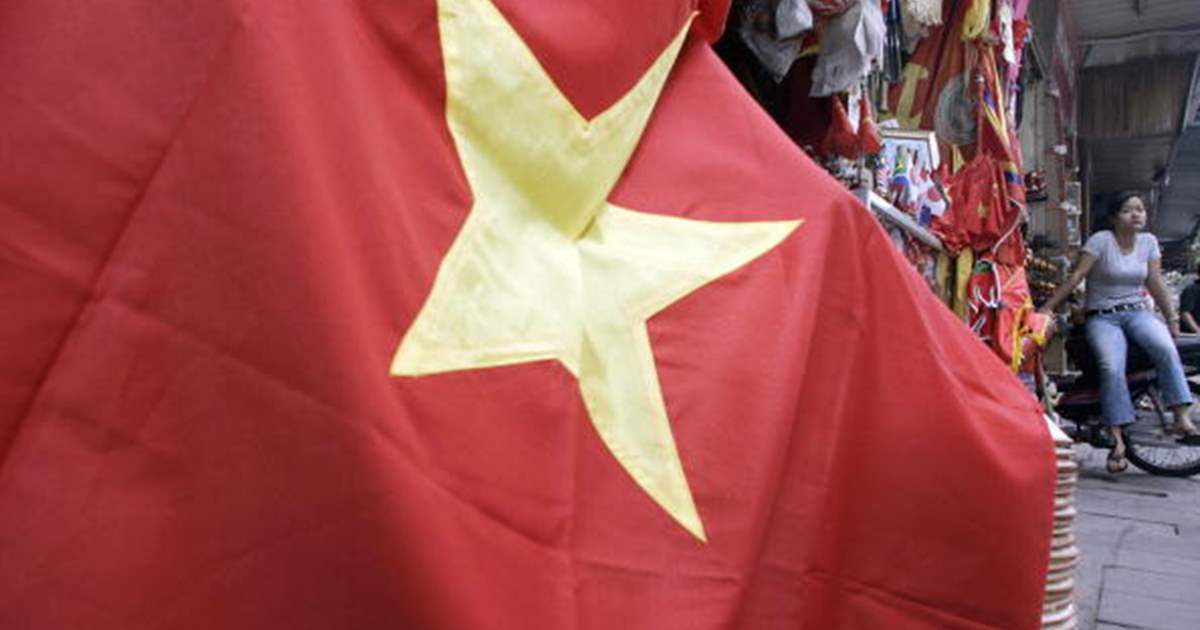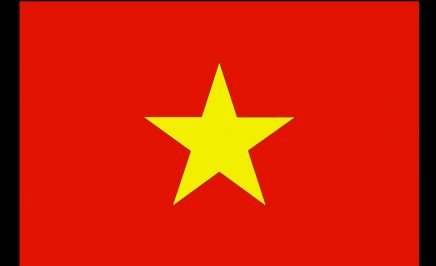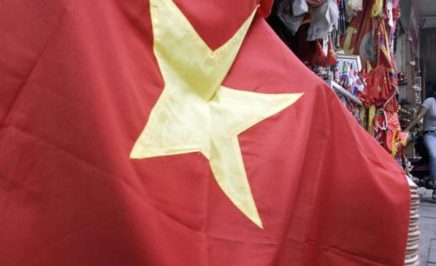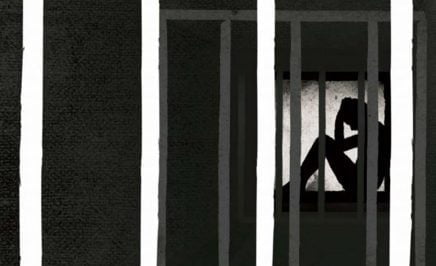The Vietnamese authorities must end their relentless assault on human rights defenders and individuals exercising their human rights to freedom of expression, association and peaceful assembly, said Amnesty International today ahead of the 13th party congress of the Communist Party of Viet Nam (CPV), scheduled to take place between 25 January and 2 February.
“The Vietnamese authorities’ intolerance of peaceful dissent has peaked under the outgoing leadership. The nomination of new national leaders provides an invaluable opportunity for Viet Nam to change course on human rights,” said Yamini Mishra, Amnesty International’s Asia-Pacific Regional Director.
The Vietnamese authorities’ intolerance of peaceful dissent has peaked under the outgoing leadership. The nomination of new national leaders provides an invaluable opportunity for Viet Nam to change course on human rights.
Yamini Mishra, Amnesty International’s Asia-Pacific Regional Director.
According to Article 4 of Viet Nam’s Constitution the CPV leads “the State and society”. This provision has been relied upon to outlaw other political parties.
The CPV congress – which occurs every five years – is the key mechanism by which government leaders are selected and policy priorities are set. It involves the nomination of new party leaders who are later formally appointed to government leadership positions by the National Assembly. The CPV has been in government since its victory in the Viet Nam War in April 1975.
“Viet Nam has made some strides in helping to realize economic and social rights for many of its people, but this progress has been severely undermined by its continued repression of freedom of expression, association and peaceful assembly.
“As Viet Nam increasingly opens to global trade, its prison gates are slamming shut on an ever-rising number of peaceful individuals.”
Surge in prisoners of conscience in five years since last party congress
Amnesty International currently recognizes 170 prisoners of conscience in Viet Nam. This is the highest number recorded by the organization since it began publishing comparable figures in 1996.
The number of prisoners of conscience has increased steeply in recent years and has doubled from 84 in the year of the previous CPV congress in 2016.
Prisoners of conscience are individuals who have been detained solely for the peaceful exercise of their human rights. Amnesty International calls for the immediate and unconditional release of all prisoners of conscience wrongfully detained in Viet Nam and throughout the world.
Crackdown ahead of upcoming congress
The recent conviction and heavy sentencing of three journalists and prisoners of conscience affiliated with the Independent Journalists Association of Viet Nam (IJAVN) – Pham Chi Dung, Nguyen Tuong Thuy and Le Huu Minh Tuan – by the Ho Chi Minh City People’s Court on 5 January 2021 is the latest violation of freedom of expression in a months-long escalation of repression.
The three journalists were convicted under Article 117 of the Criminal Code for “making, storing or spreading information, materials or items for the purpose of opposing the State of the Socialist Republic of Viet Nam”. Pham Chi Dung was sentenced to 15 years’ imprisonment, and Nguyen Tuong Thuy and Le Huu Minh Tuan each received 11-year sentences.
Article 117 is commonly used to suppress legitimate dissent in Viet Nam and has been a favoured tool of the authorities to arbitrarily imprison journalists, bloggers and others who express views that do not align with the interests of the CPV.
Pham Chi Dung, the founder of IJAVN, was arrested on 21 November 2019, days after he signed a letter urging the European Union (EU) to delay approval of the EU-Vietnam Free Trade Agreement (EVFTA) until Viet Nam took measures to improve its respect for human rights. Nguyen Tuong Thuy and Le Huu Minh Tuan were arrested on 23 May 2020 and 12 June 2020, respectively.
“These outrageous sentences reveal the Vietnamese authorities’ zero-tolerance approach to dissent. Today, Viet Nam is one of the most dangerous countries in the region to be a human rights defender, journalist, blogger or political activist,” said Yamini Mishra.
The convictions follow the arbitrary arrest of prominent human rights defender, journalist and author Pham Doan Trang in October 2020. She was also charged under Article 117 and remains in pre-trial detention.
High time to repeal or amend repressive laws
At least 36 people have been detained under Article 117 since the 2015 Criminal Code came into force in January 2018 – eight in 2018, 14 in 2019 and 14 in 2020. Those convicted have received sentences ranging from five to 15 years’ imprisonment.
In addition to Article 117 of the Criminal Code, Article 331 (“abusing democratic freedoms to infringe the interests of the State”) is another common charge used by authorities to repress its people.
Among the 23 people who have been charged under Article 331 since the 2015 Criminal Code took effect, 15 have so far been convicted and sentenced to prison terms of between six months and five years. At least nine people were charged under Article 331 in 2018 alone, another five were detained on the same charge in 2019 and nine were charged in 2020.
Both Article 117 and 331 violate Viet Nam’s international human rights obligations and should be repealed or substantially amended to comply with the rules set out under Article 19 of the International Covenant on Civil and Political Rights (ICCPR), to which Viet Nam is a state party, and other standards. Other laws that unduly restrict freedom of expression should also be repealed or substantially amended, including the vaguely worded and excessively punitive Law on Cybersecurity.
In its most recent review of Viet Nam in 2019, the UN Human Rights Committee, the body tasked with monitoring the implementation of the ICCPR, stated that Viet Nam’s “domestic legal framework remains incompatible with the Covenant” and highlighted Articles 117 and 331 of the Criminal Code in addition to the Law on Cybersecurity for their non-compliance with the requirements of the Covenant.
Big tech must end complicity in Viet Nam’s censorship regime
Viet Nam has long maintained strict censorship of the press, yet the expansion of social media in recent years has significantly opened up the space for public debate and the exchange of ideas and opinions among the general public.
As documented in Amnesty International’s December 2020 report, ‘Let Us Breathe!’: Censorship and criminalization of online expression in Viet Nam, this technological revolution has led Viet Nam’s censors and security forces to unleash a major crackdown on online expression.
A large and growing proportion of prisoners of conscience in Viet Nam are imprisoned based on their expression online, with 41% of those recognized by Amnesty International behind bars because of peaceful online speech.
In addition to imprisoning people based on their social media posts, Vietnamese authorities have increasingly enlisted tech giants Facebook and YouTube to implement censorship on their behalf.
“With these impending changes in national leadership, both the Vietnamese authorities and big tech have a chance to reset their approach. They must protect online expression in line with international human rights law and standards,” said Yamini Mishra.
Longstanding human rights concerns must be addressed
Viet Nam has a long and pressing list of human rights concerns which require urgent remedial action by the incoming party and government leadership.
The country still imposes the death penalty and undertakes executions in violation of the right to life. Amnesty International reiterates the organization’s longstanding call for this ultimate cruel, inhuman and degrading punishment to be abolished in Viet Nam and everywhere.
Ethnic and religious minorities also continue to face serious discrimination on the basis of their ethnic and religious identities and perceived political beliefs. Violence against women and girls, and in particular intimate partner violence, remains a serious and widespread concern.
“In setting policy for the coming five years, the CPV must set its sights on meeting international human rights standards. From the death penalty, to women’s rights, to the arbitrary prosecution of freedom of expression, this is a time to correct course where current policy is causing suffering and injustice,” said Yamini Mishra.








